Know More About Eczema/Dermatitis
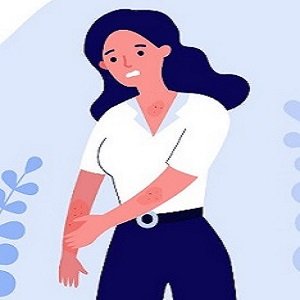
There are different explanations for this and it is important to help spread knowledge about this skin disorder.
Eczema, which can also be referred to as dermatitis, may be unpleasant, distressing, and painful at the same time.
Whether you have it temporarily or throughout your life, a variety of recovery options are available for those that suffer from acne to help relieve the symptoms.
What does eczema mean?
Though there are other types of eczema this article will address the two primary forms of eczema, Atopic, and Contact.
Atopic eczema is typically located on the joints of your arm in folds of skin, such as armpits, behind knee caps. Atopic eczema is normal in individuals who have either a personal or family history of eczema.
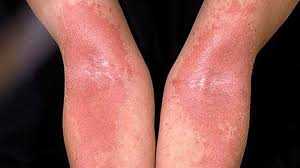
The second form is called contact eczema, and this happens most often in the hands and feet.
Eczema affects the skin and it is inflammatory. It results in dry, red, itchy, and broken skin, which may lead to further complications and pain.
Eczema typically affects young children at an early age, but it can sometimes vanish in about a year or two, or maybe when the child approaches puberty. It may also occur for a longer period of time and before they reach adulthood.
In some cases, people often experience eczema in later years.
However, for others, the disorder may be long-term for them, likely for the rest of their life, which may lead to a lot of pain.
There was a 40% increase in eczema cases according to a report conducted in 2009 in contrast to the previous four years.
Causes of Eczema
What actually causes eczema is still unknown and there is no outright cure for the disease.
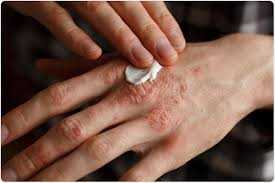
Atopic eczema is often passed in a family from generation to generation. In addition, those who suffer from atopic conditions will often have other types of eczema.
What are the signs of dermatitis/eczema?
Itching is the primary symptom associated with eczema or dermatitis, and the affected skin areas will often become red, dry, flaky, and often cracked.
Itching may only on one part of the body, such as the arm or hand, or it may spread to the feet, legs, hands, and other areas.
In terms of severity, the symptoms will also vary from person to person.
Some only experience mild itching irritation and resulting skin damage, while others will have especially distressing and long-lasting symptoms.
Problems associated with eczema
One of the problems associated with eczema is that the more the patient itches the affected region, the worse the skin will be in this case.
Owing to the weakening of the infected areas of the skin, eczema can be much more difficult.
If a patient itches a lot, the skin can crack and open, leading to infected eczema. This case normally needs treatment prescribed by the doctor.
Areas that can make a difference in concentrating on include:
Dehydration
Dehydration can lead to drier skin than normal. There is evidence to indicate that a lack of hydration will damage your body's cells and cause eczema, so you may find out that your skin condition may be improved by keeping yourself hydrated during the day.
Clothing
Clothing can also irritate the skin of patients, especially if it causes your skin to get too hot or if the fabric itself irritates the skin (e.g. woolen jumpers).
In addition, if you wear gloves for tasks such as washing dishes or gardening at home or at work, then be careful about which kind you use. For example, rubber gloves are known to irritate the skin and thus intensify eczema.
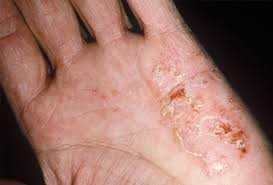
Soaps and gels for showers
Pay attention to the soaps you use every day, hand wash, and shower gels.
Many mainstream soaps and cosmetics actually cause the skin to become drier than before using them.
Again, it can vary from person to person, so if you notice that your skin is dry on a regular basis in the hours after taking a shower, then check at your nearest pharmacy for alternative and even medicated alternatives.
Regular operations
Finally, beware of the effect that day-to-day routine tasks can have. For example, if you wash your hands at work after going to the bathroom, make sure you dry your hands properly.
Frequent washing and drying of the hands can also make eczema on the hands worse, so using a soap substitute is necessary.
Health eczema therapy
If you find that you have eczema symptoms, you can first seek assistance from your doctor who can provide over-the-counter creams and ointments from your local pharmacy.
To help moisturize the skin and thereby reduce the symptoms of eczema, there are several creams available.
The efficacy of each will vary from one patient to the next, however, you will need to be prepared to try many before finding one that works best for you.
These creams should be used at least 3-4 times a day, ensuring that during the day your skin is well hydrated.
Some creams can also act as a replacement for showering and washing your hands with soap.
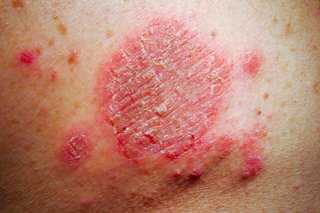
Many eczema flare-ups occur when people don't use enough of these creams from time to time, and this is one of the first things the doctor can suggest you do.
If the symptoms are very severe and do not go away after a few weeks or have not succeeded with over-the-counter drugs, then it is best to see your doctor again.
First, the doctor will check whether you have eczema and then can recommend a steroid cream to use on your eczema when it is especially worrisome.
In addition to any prescribed steroid cream, the doctor would usually recommend that you continue using copious quantities of the emollient creams.
Very occasionally, when your eczema is especially troublesome and does not respond to regular care, your doctor may have to refer you to a specialist.
Non-medical eczema therapy
There are other steps that you can take to lessen eczema symptoms, in addition to buying creams and seeing your doctor, you might be able to recognize things that cause eczema and take preventive steps.
Can you share with us other therapy you know?
Author Bio
The Editorial staff includes content researchers from various areas of knowledge. They add a plethora of expertise to the Hubslides Editorial team. They constantly and frequently oversee, produce and evaluate contents that are most ideal to aid impacting knowledge to readers.
Article Comments
No Comments!
At present there are zero comments on this article.
Why not be the first to make a comment?
Similar Articles
Sponsor
Search Articles
Experts Column
Latest Articles
Featured Articles
Most Popular Articles












